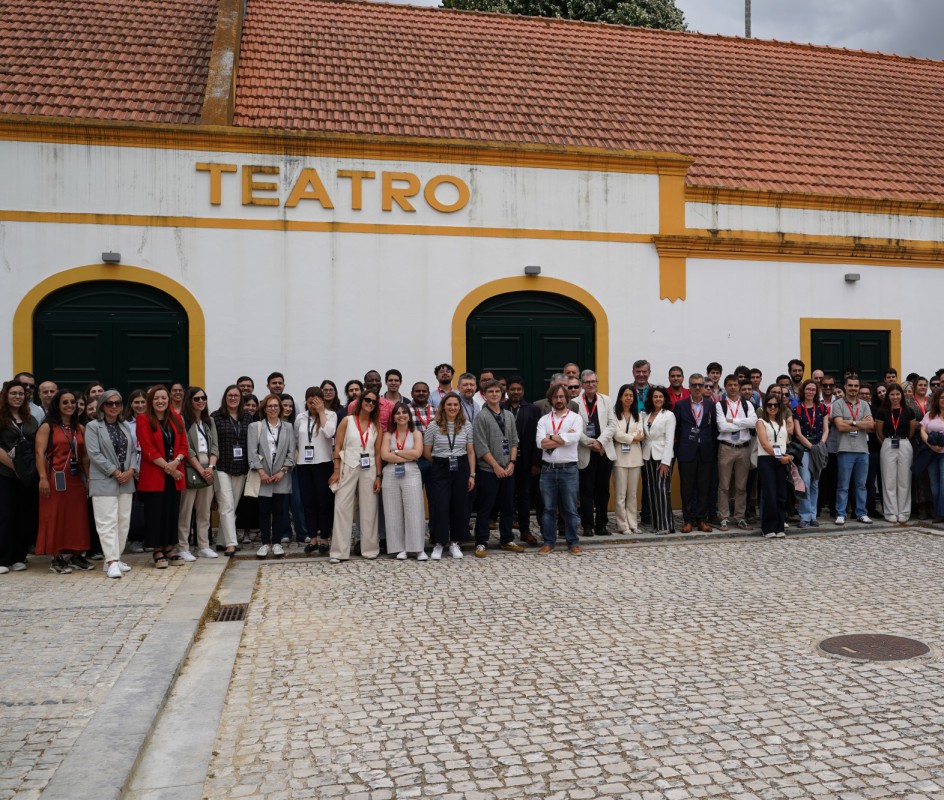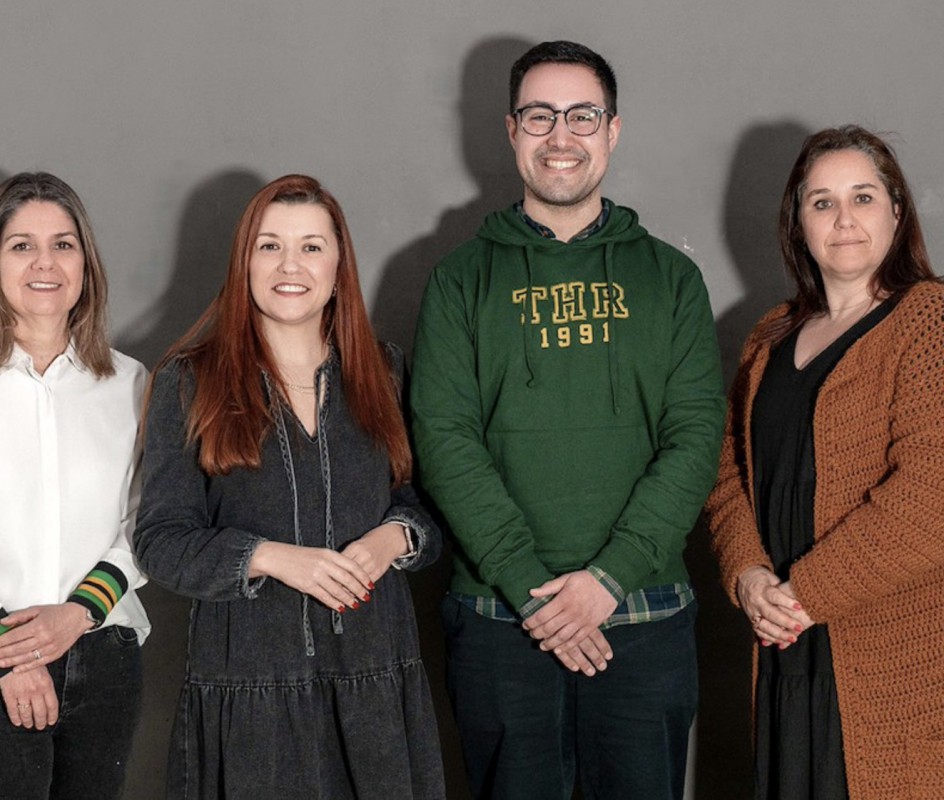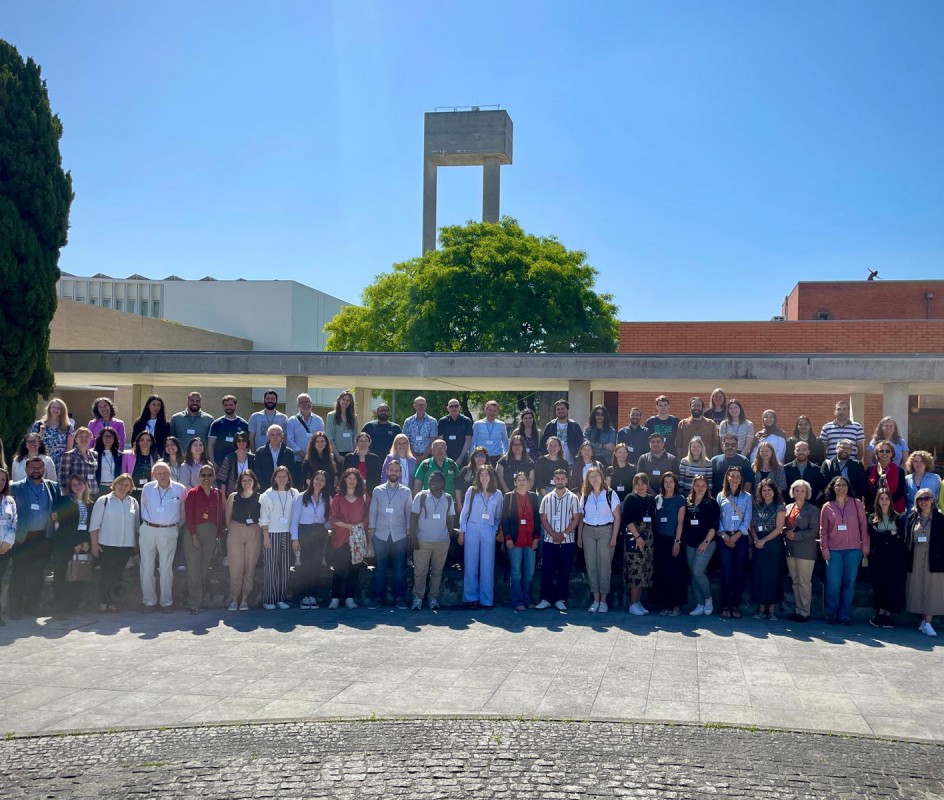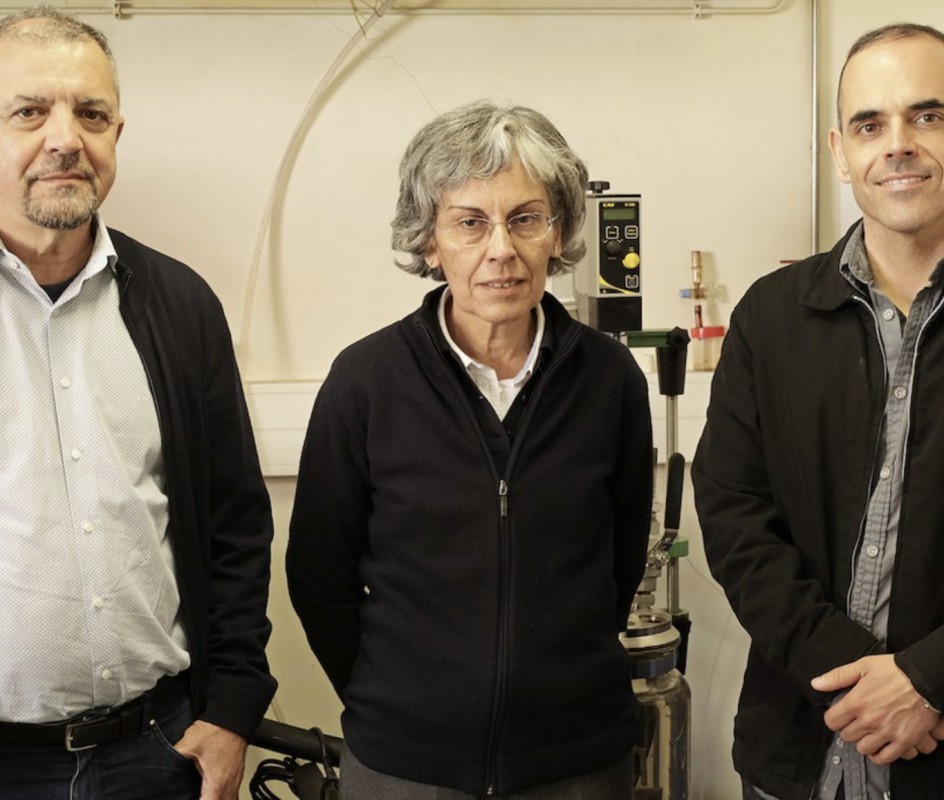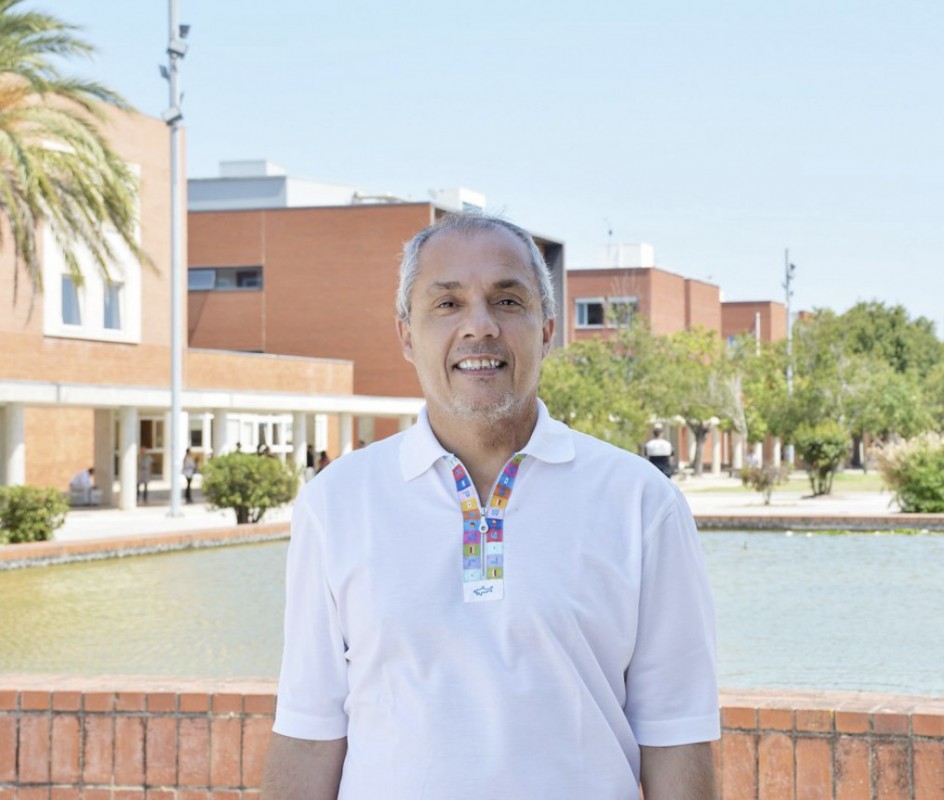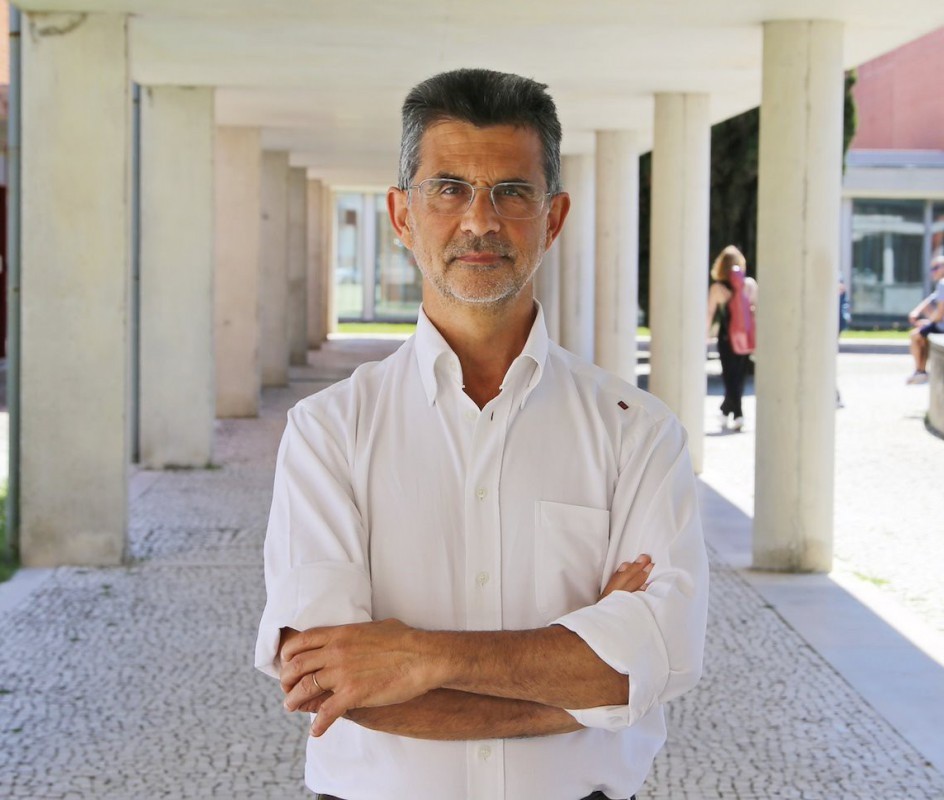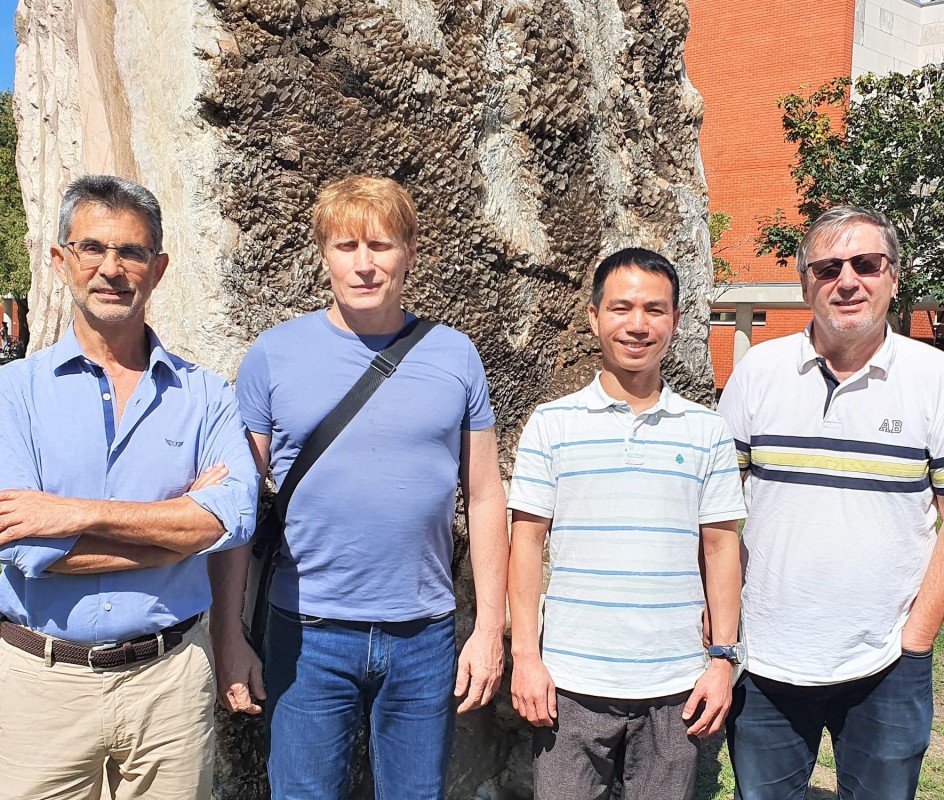
Research breakthrough in the field of molecular ferroelectric materials authored by João Rocha, Andrei Kholkin, Wei-Jian Xu and Konstantin Romanyuk, researchers from CICECO-Aveiro Institute of Materials and the departments of Chemistry and Physics of UAveiro, in collaboration with colleagues from IST-Lisbon and Sun Yat-Sen University (China), published in the Journal of the American Chemical Society was one of the most cited of 2020-2021.
Ferroelectric materials are unique substances whose spontaneous electrical polarization can be reversed by applying an external electric field. These materials are used in various fields, for example in memory devices in electronics, or in sensors and actuators.
Despite the considerable challenges associated with its molecular engineering, it was possible to synthesize a high-temperature ferroelectric by combining an inorganic component with a polar organic component. Advanced microscopy techniques were used to identify distinct ferroelectric domains and demonstrate the ability to reverse their polarization.
Notably, the research revealed a very interesting photocommutation feature: exposure to certain wavelengths induces a transition between different molecular states, resulting in a reversible change in the material's ferroelectric properties. This discovery paves the way for new approaches to the design of molecular ferroelectric materials with innovative properties.
Article
Photoresponsive Organic-Inorganic Hybrid Ferroelectric Designed at the Molecular Level
Xu, WJ; Romanyuk, K; Martinho, JMG; Zeng, Y; Zhang, XW; Ushakov, A; Shur, V; Zhang, WX; Chen, XM; Kholkin, A; Rocha, J
2020, JOURNAL OF THE AMERICAN CHEMICAL SOCIETY, 142, 40, 16990-16998.
Related Articles
We use cookies for marketing activities and to offer you a better experience. By clicking “Accept Cookies” you agree with our cookie policy. Read about how we use cookies by clicking "Privacy and Cookie Policy".


